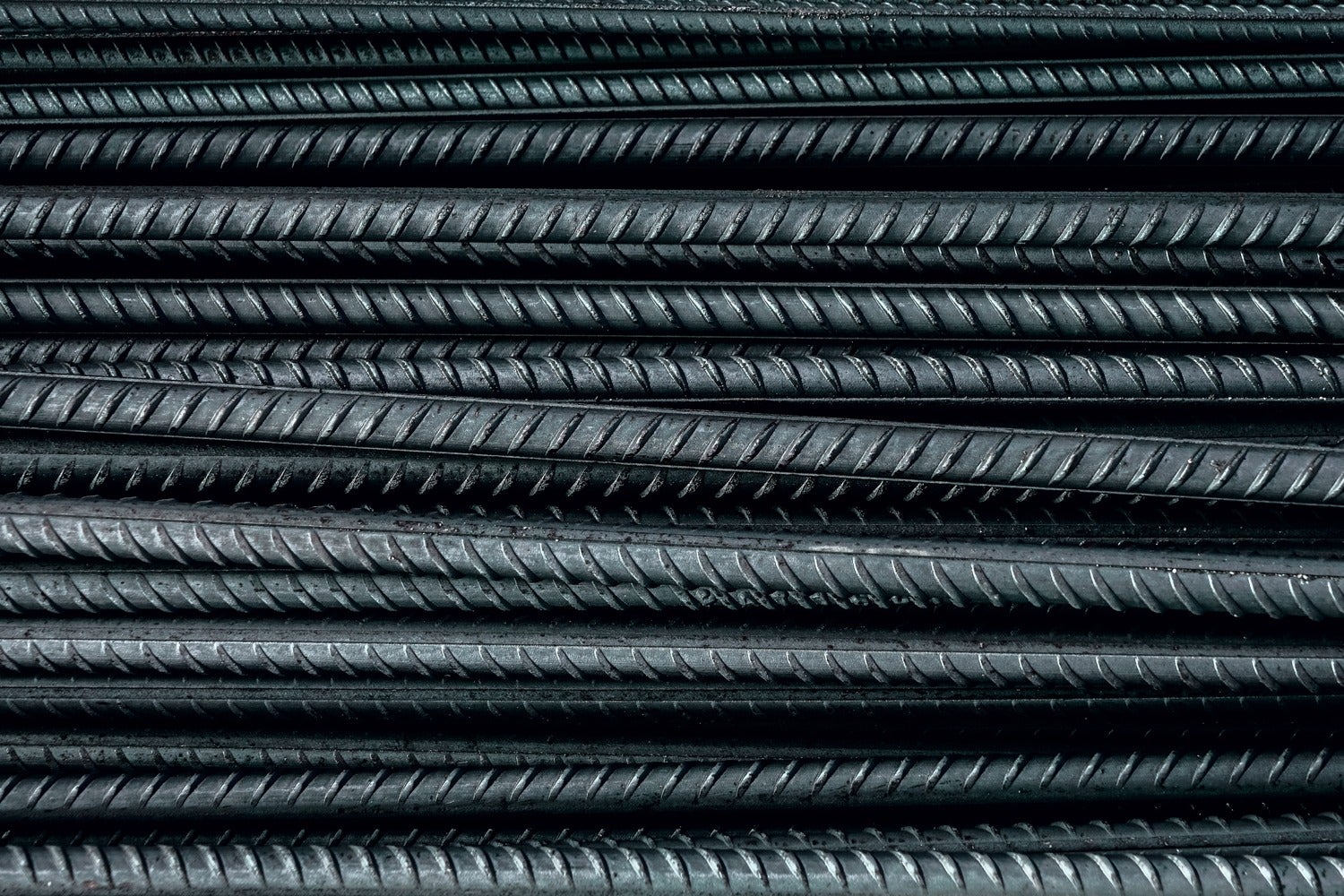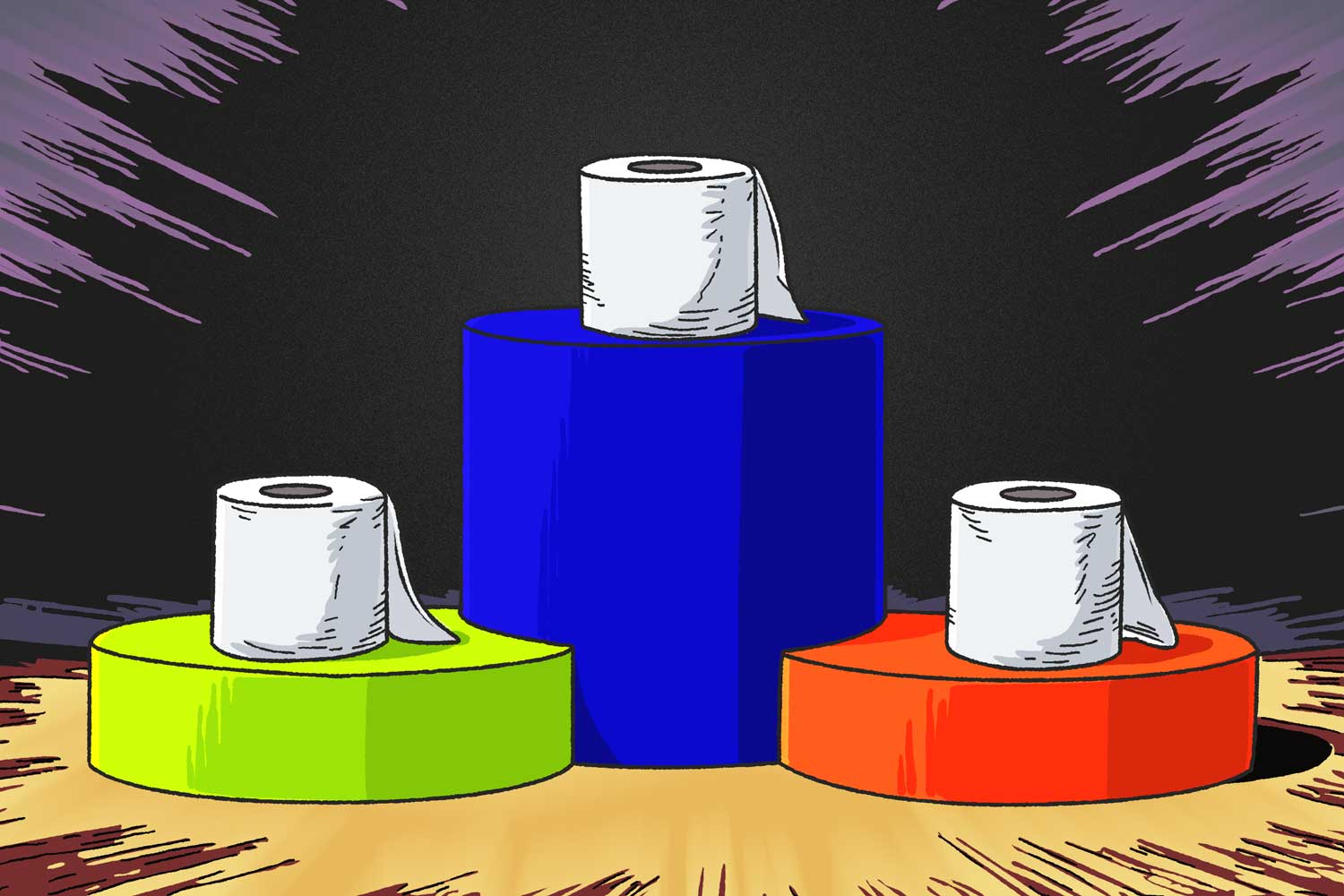Hey team, and welcome back to one5c! We get a lot of questions about sustainable products, but one item comes up more often than the rest: toilet paper. Today, we’ve got an answer—the result of weeks of research and many trips to the bathroom. Read our in-depth review of sustainable toilet papers after the news digest.
What’s cool about this product recommendation—and all our product recommendations—is that nothing like it exists anywhere else on the internet. We designed a scoring system and algorithm that crunches inputs from a product tester and a sustainability analyst to arrive at a pick that represents the ideal blend of performance and planet-friendliness. We piloted this approach last year with reusable food-storage bags and countertop composters, and now, (🥁) we’re going to start delivering this unique flavor of recommendations on a regular basis.
Is there a category you want us to dig into? Reply to this email or shoot us a note at editors@one5c.com to let us know. —Corinne
WHAT WE’RE INTO THIS WEEK
By Sara Kiley Watson

Cause for optimism
Green steel gets a big boost
Steel is everywhere, the literal backbone of everything from cars and fridges to skyscrapers and cargo ships. But refining the metal contributes 7% of global greenhouse gas emissions. There’s a range of players working to decarbonize the industry, but an advanced California mill could “set the new standard for steel,” one investor told Bloomberg. Set to open in 2027 on the strength of a $200 million loan from Generate Capital, Pacific Steel’s “micro-mill” will use local scrap metal (which will slim down transportation emissions) and renewable energy to produce rebar with an 85% smaller emissions footprint than traditional methods.
Accountability check
Trump’s climate agenda rapidly unfolds
In his first day in office, President Trump made a wave of moves to reshape the U.S. climate agenda. He initiated the process of removing the U.S. from the Paris Agreement, announced a freeze on the vast majority of federal wind energy permits, began work on rewriting the EPA’s tailpipe regulations, promised to open new oil and gas drilling in Alaska, resumed processing liquified natural gas export permit applications, and froze all ongoing federal spending under the Inflation Reduction Act for 90 days. He also declared a “national energy emergency.” The purpose for these actions, Trump states, is to bring down energy costs for consumers and boost energy production, but, writes Heatmap’s Robinson Meyer, that’s all based on a flawed premise: The U.S. has reached record oil production levels, and energy costs are already quite low; s the issue is not getting more fossil fuels out of the ground, but finding someone to sell them to. That means these new rules may effectively force Americans to use more energy, therefore spending more and more money on fossil fuels.
Planet home
Nature’s swaps for pesticides
Growing enough food to feed the world is already a challenge, but throw in all of the greenhouse gases and environmental issues associated with the production and use of pesticides and you’ve got a real conundrum. But it is possible to reduce our dependence on those chemicals, and several solutions come right from nature itself. Ants, Grist reports, have antimicrobial superpowers that can reduce issues like pear scab, coffee leaf rust, and fungal attacks. At the same time, Yale Climate Connections is tracking the return of “trap cropping,” which essentially means using a second plant to shield another one from pests, across the globe: In India, marigolds protect farmed chile plants, while mustard plants stopped flea beetles from ruining sugar beets in Italy.
Consume this
A one-stop guide to vegan Girl Scout Cookies
Girl Scout Cookies are among the most recognizable snacks in the country, but what makes them even more special is a commitment to providing plant-based options. Cookie shipping starts in February, so before you get to ordering, check out VegNews’ guide to the six animal-free options on offer. Read carefully, because the Scouts use two different bakeries, which means some varieties coming out of one cookshop might use dairy while ones from the other won’t. No matter what, though, you can count on Thin Mints as fair game. We also know that the presence of palm oil in a lot of packaged baked goods can give some folks pause, but we looked into why going cold-turkey there might not be the best move.
Report card
Atmospheric carbon increased faster than ever in 2024
We’ve all got a drawer or cabinet or box jammed with old phones, cables, charging bricks, and other derelict electronic paraphernalia. The urge to hang New findings from the Mauna Loa observatory in Hawaii, which has been measuring how much carbon is in the atmosphere for more than 60 years, found levels rose by about 3.6 parts per million in 2024. That’s the fastest rate on record, and shows that emissions are outpacing goals set by the Intergovernmental Panel on Climate Change—the U.N.’s cohort of climate experts—to keep the global temperature uptick below 1.5 degrees Celsius above preindustrial levels. Rising CO2 easily connects back to burning fossil fuel and the atmospheric consequences of wildfires, but also to factors like an El Niño year’s impact on vegetation, say the UK Meteorological Office scientists who wrote a summary of the findings for Carbon Brief. Flora acts as a natural carbon sink, and hotter, dryer weather means less greenery growing and sucking up emissions. In 2025, La Niña should help those sinks recover—at least partially.
MIC-DROP CLIMATE STAT
30%
The amount of a home’s warmth that can escape through its windows, according to the Department of Energy. Simple fixes like blackout curtains and cellular shades can help keep blustery winter weather at bay.
PRODUCT REVIEW
THE BEST ECO-FRIENDLY TOILET PAPER
By Jesse Will & Tyler Santora

Toilet paper is a fact of life in American homes; the average person uses 141 rolls of the stuff a year. But the cuddly, forest-dwelling mascots adorning TP packages are masking a dangerous irony. The wood pulp used to produce the majority of tushy tissue comes from freshly cut trees, and much of the U.S. supply originates from Canadian forests, where logging contributes some 26 million metric tons of carbon emissions a year, per a report by the Natural Resources Defense Council (NRDC).
Given the product’s short and dirty lifespan, it’s hard to defend anyone wiping their butt with virgin stock of any kind—that includes bamboo, which involves water-intensive farming. If what you seek is eco-friendly toilet paper, what you want to get behind is one made from recycled products like office paper, junk mail, and newsprint. According to the NRDC report, transitioning the U.S. tissue industry from brand-new to recycled fiber could cut planet-warming emissions by 13.1 million tons annually, which is equivalent to parking 2.6 million gas-powered cars each year.
Now, if you think recycled TP would be as rough as a gas station paper towel, we’re right there with you—or at least we were. But, after testing six popular and easy-to-find recycled brands in both real-world and simulated bathroom settings, and digging into factors affecting sustainability like where companies get their paper and how they handle shipping, we were pleasantly surprised by how gentle on bums and the planet the best recycled toilet paper turned out to be.
